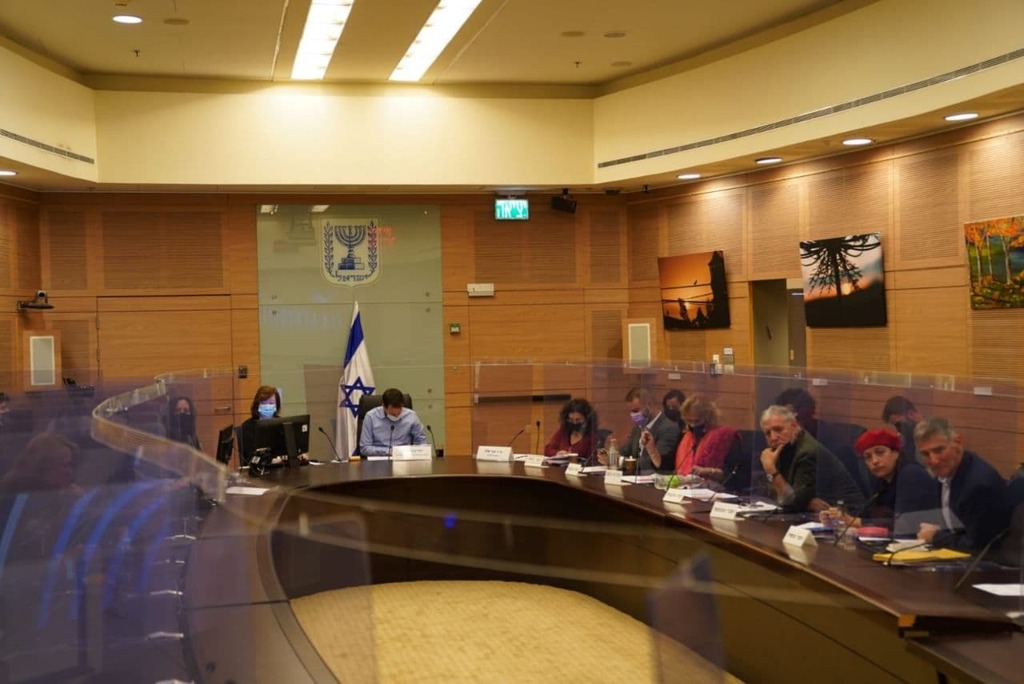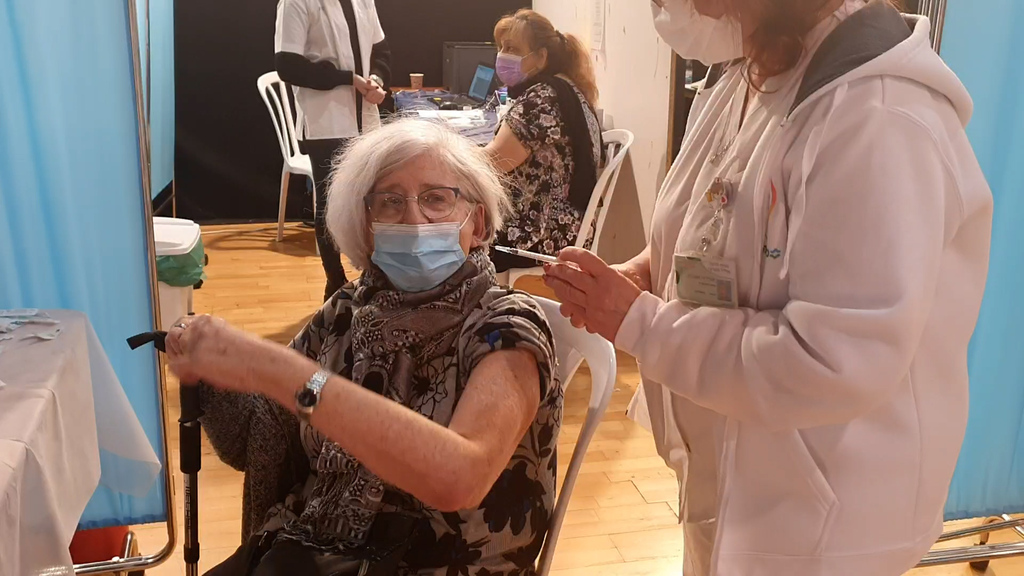Getting your Trinity Audio player ready...
Israel began its third lockdown since the start of the coronavirus pandemic at 5pm on Sunday, as coronavirus cases across the country continue to surge and health officials worked to raced to vaccinate as many as people as possible as quickly as possible.
The new closure was formally announced Wednesday in a rare joint statement by Prime Minister Benjamin Netanyahu and Defense Minister Benny Gantz and approved by the cabinet a day later.
5 View gallery
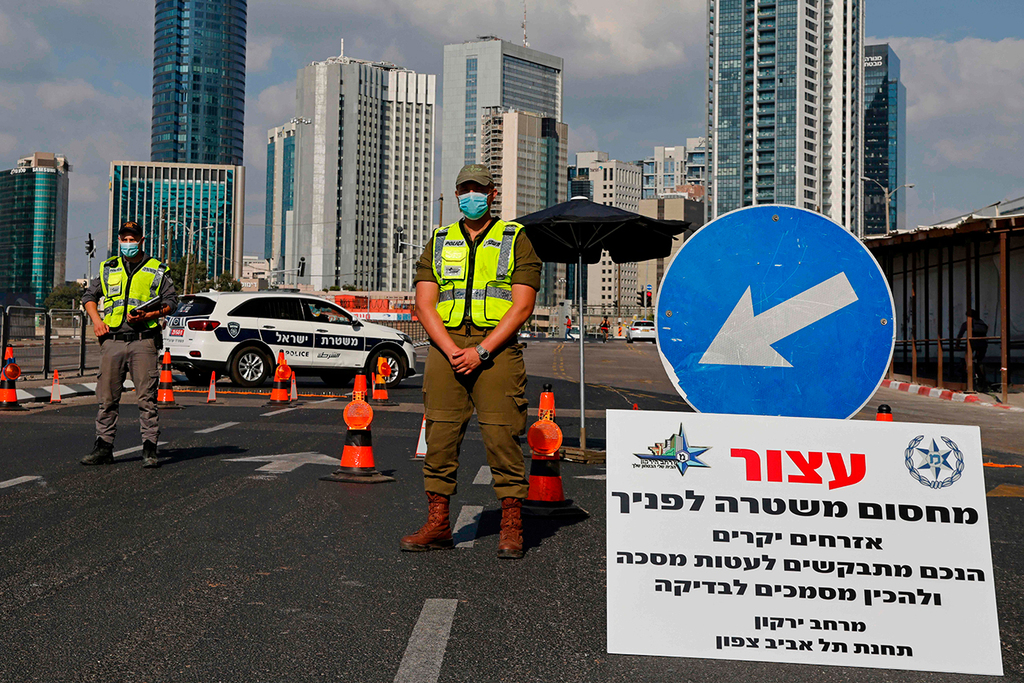

Soldiers and police in Tel Aviv enforcing Israel's second nationwide lockdown in September
(Photo: AFP)
The lockdown was expected to last beyond the two weeks announced by the government and will remain in place until the daily infection rate drops below 1,000 new cases and the R number (indicating the number of people each infection person passes the virus to) is found to be below 1.
Like the previous lockdown that ended in mid-October, the public will be restricted from traveling no more than one kilometer from their homes and banned from entering residences in which they do not live; trade and entertainment venues will be closed; restaurants will only be able to provide food deliveries; non-public facing businesses will be able to operate at 50% capacity; public transport will operate at 50% of the usual schedule; and social gatherings will be restricted to 20 people in an open air location and 10 people indoors.
The transfer of children between two parents who do not live together will continue uninterrupted.
The lockdown was also set to include schools remaining partially open to students, with kindergartens, grades 1-4 and 11-12 attending classes in person from 8am to 1pm while special ed classes will continue unchanged.
But the Knesset Education Committee rebelled against the "yellow" areas with relatively low infection rates to attend school in person as well. The government could reissue its order to close school for those grades, but it was unclear whether it would do so.
Israel has struggled to maintain the low infection rates created during lockdown, with the government both times accused of reopening too quickly.
Officials remained optimistic, however, that this would be the last nationwide closure as the vaccination program continued to gather steam.
5 View gallery
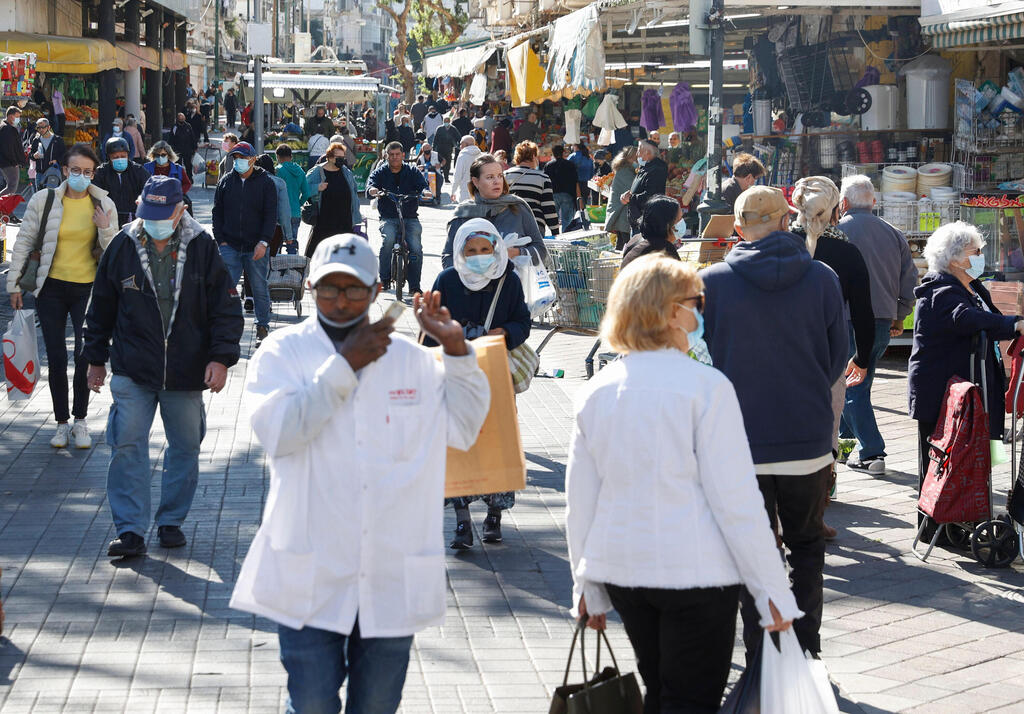

Shoppers in Netanya rush to stock up before the start of Israel's third lockdown
(Photo: AFP)
Prime Minister Benjamin Netanyahu said Saturday that Israel was aiming to vaccinate up to 150,000 people by the end of the week.
Once that happened, Netanyahu said in a video message posted online, he hoped to see 4.5 million Israelis vaccinated within 30 days - roughly half of the entire population - and had already been in touch with the companies making the vaccine to urge them to keep up with the country's demand.
With the inoculation drive entering its second week, some 280,000 people have already received their first dose of the two-stage inoculation.
The vaccines mean "there is a very high chance that this is our final lockdown," Sharon Alroy-Preis, head of the Health Ministry's public health services division, told Army Radio on Sunday.
The country saw some 2,630 new cases of COVID-19 on Saturday, with a positivity rate of 4.1% after 64,662 tests were conducted.
Dialogue not fines
Israel Police said Sunday it would concentrate its enforcement efforts on illegal gatherings during the lockdown.
Unlike in the two previous lockdowns, the police said they would not be setting up roadblocks during the day, to enforce the ban on movement of more than one kilometer from home. They also said they would favor dialogue with citizens over the imposition of fines.
Temporary roadblocks were to be set up on intercity roads for spot checks solely to ensure people are in compliance with the lockdown directives that allow some people to travel to work, and in an effort to avoid the traffic jams and delays that were seen during the lockdown imposed over the Jewish New Year in September.
5 View gallery
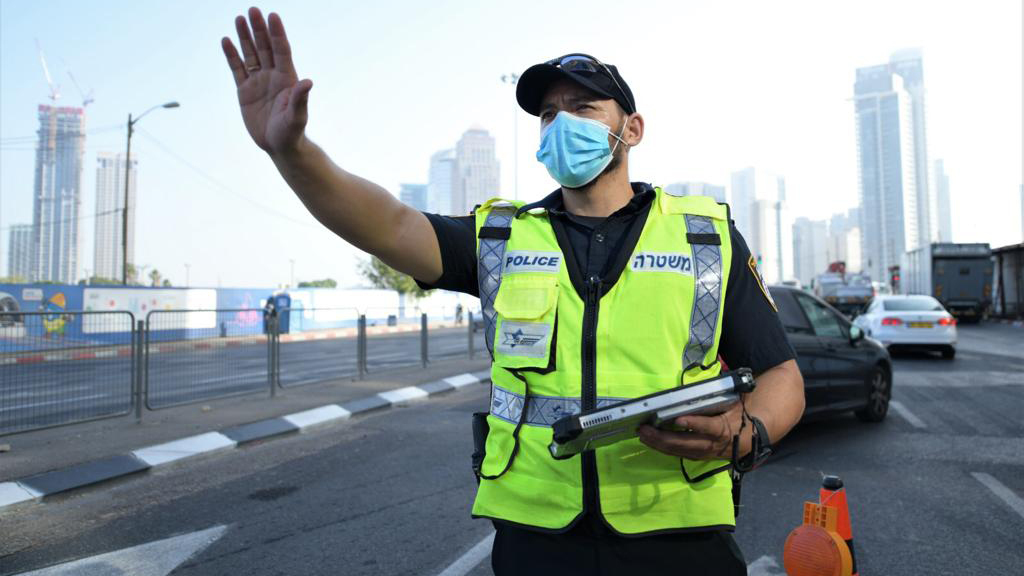

Police enforce travel restrictions during the second lockdown in September
(Photo: Police Spokesperson)
In the evening hours, police were to increase their presence on roads to prevent unauthorized movement with an estimated 300 roadblocks going up all over the country from the early evening hours until midnight.
"We are facing a complex reality," said Assistant Commissioner Shimon Nachmani, Israel Police head of operations.
"The third lockdown is unlike the first two previous ones. We must demonstrate our resilience along with our restraint in order to prevent a rise in morbidity," he said.
There was concern that New Year's Eve celebrations would be held in violation of the lockdown and police officials said they would work towards thwarting planned events before they take place, as well as enforcing the law at events that are detected.
According to the police, and in accordance with the law, political demonstrations will be permitted and there would be no travel restrictions on those wishing to participate in them.
Police also committed to increased enforcement in the ultra-Orthodox and Arab communities, where infections rate are high.


